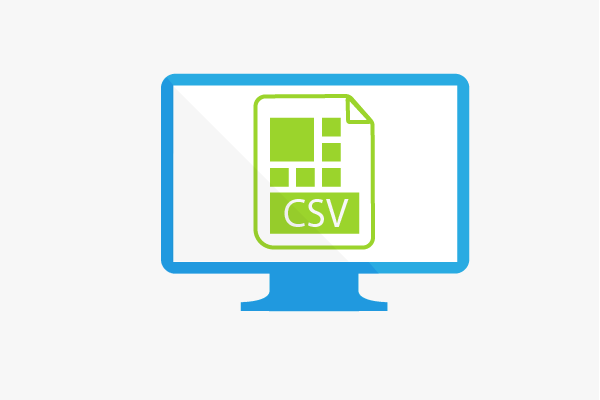CSV (format)
The abbreviation CSV refers to a text data type in data processing with which large quantities of structured data can be recorded, stored, and processed. The term CSV stands for “comma-separated values.” CSV files are frequently used for product catalogs of online shops. These files are edited using common office programs. The file ending is .csv.
Background and structure
Structured data can be used and processed with the CSV format. There are no fixed encoding rules for creating CSV files. Typically, UTF-8 is used and written in 7-bit ASCII. Different characters (commas, tabs, etc.) are also used for line breaks. Common representations are tables, in which further tables can also be nested.
The following structure is typical for a CSV file:
- Definition of the columns in the header of the table
- A character is used to separate individual records
- A character is used to separate individual columns (commas, tabs, or spaces)
- Field delimiter HTML Special Character within the file to avoid confusion with the separators
Formatting
There is no uniform formatting for CSV files. When data is collected for special read-out software, the formatting must be defined beforehand to avoid errors. Thus, problems occur when date or time data are to be read out. Similarly, it might be possible that too much text causes readout errors.
Areas of application
CSV files are used in many areas. Here are some application examples:
- Product export for the ERP system of an online shop
- Data export from an SEO Software’s Tool, Reanalyze Tools or Web Analysis Tool such as Google Analytics for further processing with your own programs or Reporting
- Product import for price comparison portals or shopping portals such as Google Shopping or Amazon Product Ads
- Data export for the provision of data delivered via CSS
- Export URL lists for further processing with appropriate analysis tools
- Provision of product lists for Affiliate Marketing or Retargeting
Benefits for Marketing and SEO
The advantage of CSV files in marketing is that this raw data can be easily analyzed with popular office programs and displayed clearly in charts or diagrams. Moreover, the data can usually be collected with many CMS or analysis tools through a simple file export. For the SEO area, CSV files are suitable to create regular reports on keyword positions or to generate overviews of existing URLs, for example.
It can be disadvantageous that there are no fixed formatting rules. Date formats being read out differently, or blank fields being interpreted incorrectly can lead to false conclusions from the analysis in the long term. It is therefore important that all formatting is clearly defined before data collection.

